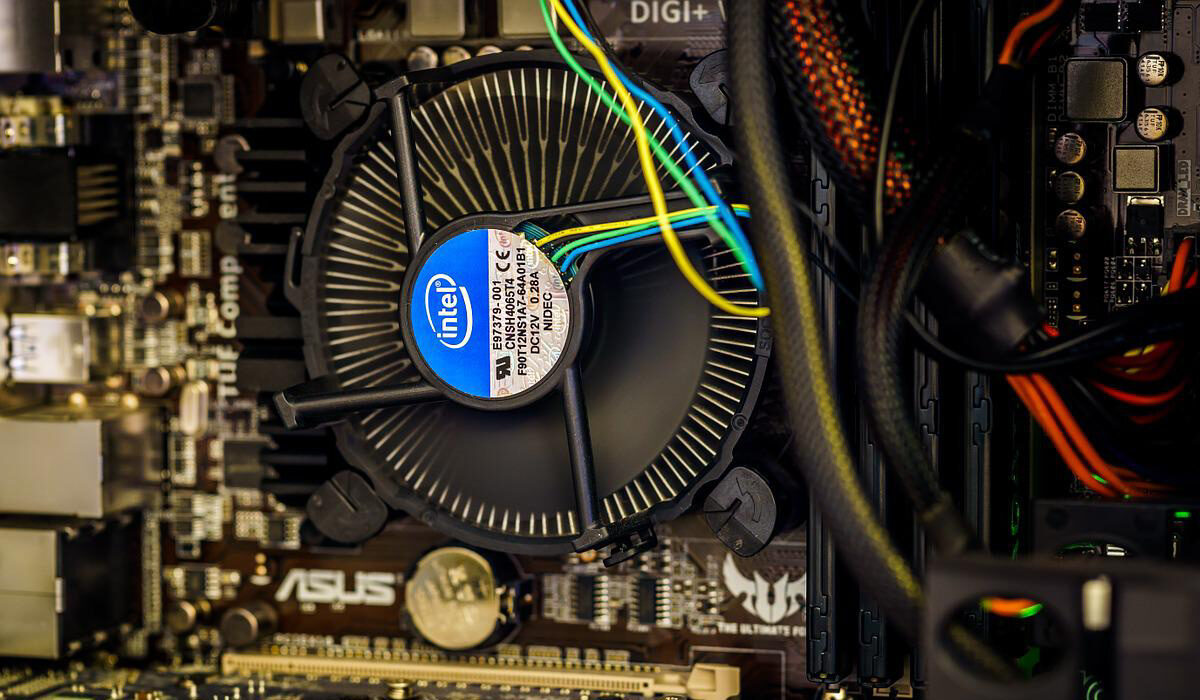There are several reasons a PC’s fan could start making loud buzzing or whirring noises. Some of these include the presence of debris in the vents, high internal temperatures brought on by 100% disk usage, excessive RAM usage, or a lack of airflow. Your fan can get loud at times, which is normal, but if it keeps rattling loudly for a while, you really need to look into it. In this article, we’ll show you how to reduce loud noises from your PC’s fan, and keep your machine working smoothly and efficiently. Check and Close Some Demanding Apps and Programs A loud PC fan is sometimes the result of your PC attempting to keep up with demanding load. Programs, applications, and background operations can strain your PC, sometimes beyond repair, especially when there are many running at the same time. While some computer noise is typical during processing, you should close certain apps if you notice the CPU fan being excessively loud. As a sign, your Task Manager will display high levels of activity, so using the Task Manager is the best way to see which programs are using up the majority of your CPU and then stop them. Here’s how to go about it:
Select Task Manager; right-click on the taskbar to do this easily. You should be able to see which applications are consuming all of your CPU and memory on the Processes tab. Shut down an application by right-clicking on it and choosing End task if you notice that it’s using a lot more resources than the other programs or taking up all of your disk space.
To improve performance and get beyond the processing power restrictions imposed by manufacturers, some individuals typically overclock their CPUs and GPUs. Those restrictions may seem understandably restrictive, but it’s important to remember that they’re there to make computers perform more efficiently and last longer. As such, keeping to them will ultimately be beneficial both to you and your PC. Close Tabs Not in Use Web browsers like Chrome and Safari are more likely to use more resources the more tabs you have open on them m. Your computer will also heat up as a result if you have too many open tabs on your browser. By selecting Bookmark All Tabs from the context menu when you right-click on the gray area to the right of your open tabs, you can bookmark every tab that is open. The fan noise should then stop if you close your browser after bookmarking the tabs. All of your former tabs will be bookmarked so you can quickly access them again when you reopen your browser. Your browser will also typically provide additional menu options when you click on a specific tab, such as Close tabs to the right. It’s practical to close certain tabs this way while keeping other ones you’re using open. Improve Airflow around the Vents When your PC needs the air inside to circulate, your computer’s fan can start up and begin to make noise. As such, you’ll need to make sure there is space around your device and provide it some breathing room. Ensure that there is adequate ventilation and open airflow around your computer. Additionally, avoid closing your laptop’s case while it is on. Your computer’s hardware will remain cool and its fan will operate quietly as long as air is allowed to circulate around it. So always make sure there is constant airflow around the vents of your PC. Switch off your PC All running processes will end the moment your computer is turned off. Airflow issues will also end as expected, your computer’s fans will turn off, and your machine will become quiet once again if no apps or programs are active. After turning it off, leave it to rest and cool off for a while When you turn your system back on, make sure to keep background apps to a minimum and maintain sufficient airflow so the fans don’t begin to get noisy again. Get rid of Malware Your computer’s fans may start to whir and rattle as a result of malware presence. If this is the case, use a reliable virus removal tool (there are several options online) to get rid of the malware if you suspect that’s what is causing the loud computer fan noise. Install Fan Controls The BIOS on your computer, which is the advanced settings, allows you to control the fan’s amount of operation. If you’re checking your CPU temperature because your fan is buzzing loudly, only access your BIOS if you’re sure you know what you’re doing. However, you can adjust the fan settings in your BIOS to reduce noise. To change fan settings, you can also try SpeedFan, but only do this if you’re an expert. In conclusion, there are many steps to take if you realize there’s a distressingly loud sound coming from your PC’s fans. In addition to the fixes for a loud PC fan that we’ve described above, also consider cleaning your fans as loud sounds are typical when debris blocks their functioning. Make sure to pay attention to all the instructions we’ve outlined in this guide to get the best performance out of your PC. Also, we’re sure you’ve found this article helpful, so don’t forget to recommend it to your loved ones.
Don’t miss our mobile phone reviews.Follow our news on Google News.Join our WhatsApp Group, to be notified of the most important articles and deals,Follow us on Instagram, Facebook, Twitter, and YouTube.
